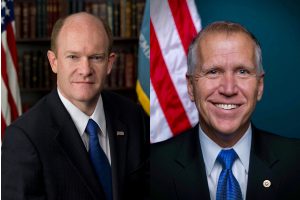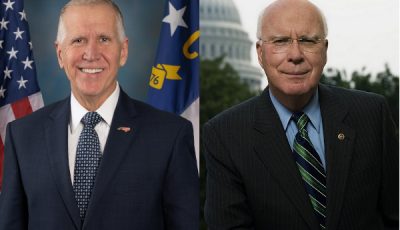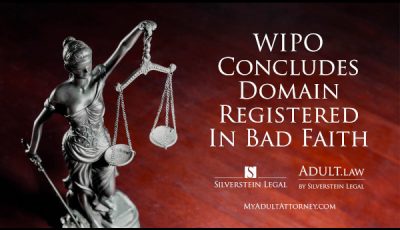Senators Want Copyright Office to Speed Up Registration Process
 WASHINGTON – On the heels of the U.S. Supreme Court’s decision last month in the case Fourth Estate Public Benefit Corporation v. Wall-Street.com, in which the Court held that “registration” of a copyrighted work doesn’t occur until the Copyright Office has registered a copyright, two U.S. Senators are calling on the Copyright Office to find ways to speed up its processing of copyright applications.
WASHINGTON – On the heels of the U.S. Supreme Court’s decision last month in the case Fourth Estate Public Benefit Corporation v. Wall-Street.com, in which the Court held that “registration” of a copyrighted work doesn’t occur until the Copyright Office has registered a copyright, two U.S. Senators are calling on the Copyright Office to find ways to speed up its processing of copyright applications.
In a March 14 letter addressed to Karyn Temple, the Acting Register of Copyrights at the U.S. Copyright Office, Senators Thom Tillis and Christopher Coons noted that in its decision, “the Court determined that, with very limited exceptions, your office must complete its review of an application for copyright registration before an infringement lawsuit can be filed.” (Emphasis in original letter.)
“We are concerned that this decision could unduly hinder the enforcement of constitutionally protected intellectual property rights, and we ask that you take steps to mitigate the unfortunate implications of this decision,” Tillis and Coons wrote.
“The Constitution recognizes creators’ interests in their creative works, and it affords Congress the authority and responsibility to secure those interests through the protections and remedies of copyright law,” the letter continued. “Congress has enacted statutory remedies that enable creators to enforce their property rights through litigation in federal courts. The Supreme Court’s decision in Fourth Estate significantly reduces those statutory protections by making enforcement of a creator’s rights depend upon your office’s processing of an application.”
Noting that it takes an average at least six months for the Copyright Office to process applications, the senators assert that the “real impact” of the Court’s decision “will be the extended unlawful exploitation of a copyright owner’s intellectual property.”
“This outcome is troubling,” Tillis and Coons continued. “We understand that the Copyright Office, and the Library of Congress broadly, have embarked on an extensive effort to modernize their systems and operations. We hope and expect that reducing the pendency of copyright registration applications will remain a priority in this initiative, and that the Copyright Office can return to the one-to-two-week processing timeframe referenced in the Court’s decision.”
To assure that the Copyright Office does make a priority of speeding up application-processing, Tillis and Coons requested that the Office answer several questions posed in the letter, no later than Sunday, April 14.
The questions to which the Senators want answers are:
– “What steps will your office take to reduce the pendency of current copyright applications?”
– “How will you ensure such a backlog of copyright registration applications does not occur in the future?”
– “What budgetary resources does your office need to reduce the pendency of copyright registration applications from several months to, at maximum, a few weeks?”
– “Will you develop and submit a pendency reduction plan to the Senate Judiciary Committee, Subcommittee on Intellectual Property by no later than May 31, 2019?”
– “Will you commit to providing staff from our offices with regular updates – at least once per quarter – on your efforts to reduce copyright registration backlogs?”
– “Are you developing a strategic plan for the Copyright Office’s modernization initiatives? If so, when will this plan likely be released?”
While asking the Copyright Office to trim application-processing time from six months to two weeks is asking quite a lot, at least Senators Tillis and Coons have suggested they understand achieving the goal may require additional “budgetary resources” – a catchall which likely includes hiring additional staff to facilitate faster processing of registration applications.
Assuming it meets the deadline proposed by the senators in their letter, the Copyright Office has the rest of this week to compose responses to the six questions the lawmakers posed. Of course, writing those responses or constructing a plan to reduce processing times is significantly different from executing the plan and achieving the goal.
Still, from the perspective of rightsholders, including those within the adult entertainment sector, the fact that lawmakers recognize the potential problem created by the Court’s decision in Fourth Estate – and have asked the Copyright Office to do something about it, urgently – is an encouraging sign.
Now comes the hard part, especially where the federal bureaucracy in Washington is concerned: following through and turning open-letter rhetoric into real-world results.













